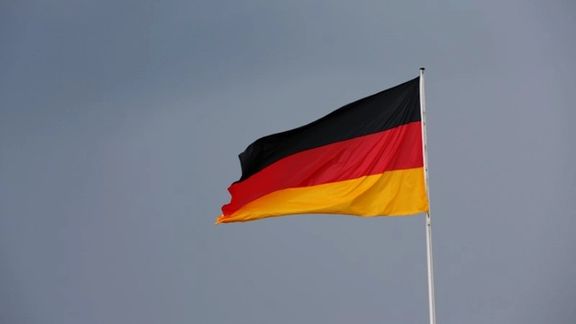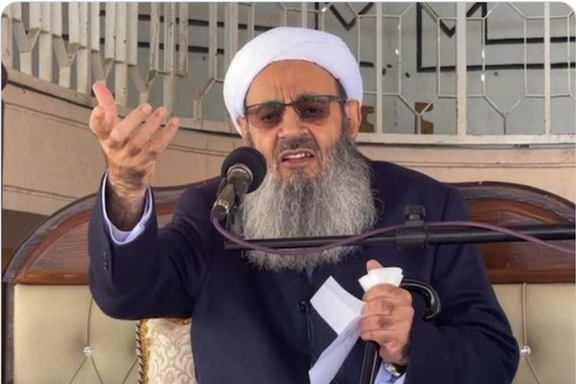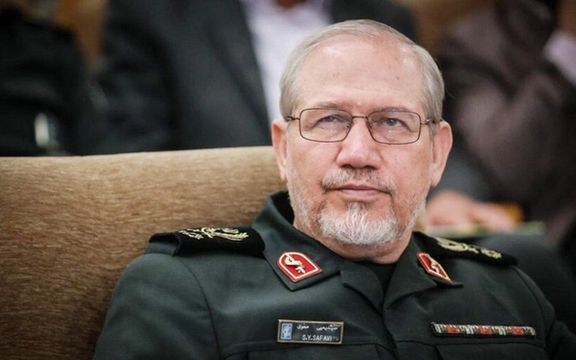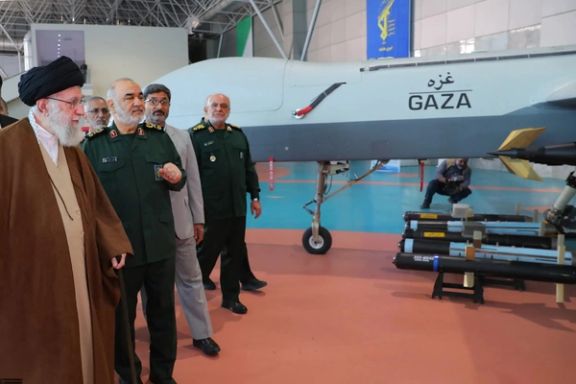Germany Advises Citizens In Iran To Depart As Tensions Escalate

The German Foreign Office has recommended that its citizens leave Iran due to escalating tensions and the possibility of conflict with Israel.

The German Foreign Office has recommended that its citizens leave Iran due to escalating tensions and the possibility of conflict with Israel.
The advisory warns of the dangers to air, land, and sea travel in the region and specifically mentions the risk faced by those with dual citizenship in Germany and Iran. It cautions against the higher chance of being detained or questioned without warning.
“In the current tensions, especially between Israel and Iran, there is a risk of a sudden escalation,” stated the German Foreign Office in its renewed travel warning.
The news comes as German airline Lufthansa has decided to prolong its pause on flights to and from Tehran due to the unstable conditions. The airline made an announcement on Friday that it will be avoiding Iranian airspace for an indefinite period.
"Because of the current circumstances, Lufthansa is halting its flights to and from Tehran until Thursday, 18 April," a spokesperson for the company confirmed.
This cautionary measure comes after reports from US intelligence officials warned of a heightened risk of potential Iranian attacks on Israeli soil within the next 24 to 48 hours. US President Joe Biden had previously warned that Tehran could take action against Israel "sooner rather than later."
Germany, Britain, Canada, Russia, and Australia have all advised their citizens against traveling to Iran, Israel, the West Bank, and Lebanon due to rising tensions in the Middle East.
Follow developments on Iran International's Live coverage of ongoing tensions between Iran and Israel.

Iran’s top Sunni cleric Mowlavi Abdolhamid has once again urged the government to hold “constructive” talks with protesters as widespread dissatisfaction has largely delegitimized the Islamic Republic over the past years.
“We believe in dialogue, but not the kind of dialogue that results in no action. We believe in a constructive dialogue that results in accepting the truth,” said the top religious leader of Iran’s largely Sunni Baluch (Baloch) population in his Friday prayer sermons in the Makki Jameh Mosque of Zahedan, the provincial capital of Sistan-Baluchestan.
The situation has recently become more tense in the province as the insurgent Sunni Baluch group known as Jaish al-Adl (Army of Justice) has intensified its operations against Iranian security forces in southeastern Iran. The group advocates for enhanced rights and improved living conditions for the Baluch ethnic minority.
On Tuesday, six law enforcement officers were killed by Jaish al-Adl militants during an ambush on police vehicles along the Sib and Suran county route. The group also launched simultaneous attacks recently against military posts in Chabahar and Rask last week, killing 16 police forces; the clashes also claimed the lives of 18 Jaish al-Adl militants.
On April 5, Abdolhamid urged the government and the militant group to avoid further “gunfights and bloodshed,” stressing that the two sides should “sit together and talk through their problems.
His call for negotiations between Tehran and Jaish al-Adl immensely angered the Iranian government, which has designated the group as “terrorist.” IRGC-affiliated Fars and Tasnim news agencies harshly criticized the Sunni cleric, with Fars saying he “knowingly or unknowingly” serves the interests of “Western political and security apparatus.”
In another response, Mojtaba Azizi, the government-backed Shiite imam of Friday prayers in Zabol, another town in Sistan-Baluchestan, accused Abdolhamid, without naming him, of backing Jaish al-Adl militants. The authorities must deal decisively with the militants, including “the Israeli and evil movement in the Makki Mosque,” stated Azizi in what was seen as a direct attack at Abdolhamid.
In response to the government-orchestrated attacks, Abdolhamid blamed the regime for fanning the flames of discontent and violence in the country by refusing to listen to the demands of the protesters.
“You don’t negotiate with armed people, but have you negotiated with unarmed peaceful protesters? Have you talked to political prisoners about their demands?” asked the Sunni cleric, further saying that the regime authorities should have heard and fulfilled the demands of the Iranian nation which has been protesting over the past two years.
Expressing his opposition to “any kind of violence from anyone and any party,” Abdolhamid firmly stressed that he encourages and supports “civil efforts” to change the status quo.
In his sermon, the cleric also referred to the government’s harsh measures to enforce compulsory hijab laws in Iran. “Violence begets violence … If you want to enforce religious precepts in society, do not resort to violence. It will not work.”
The Iranian police has announced that it will adopt stricter measures to impose compulsory hijab as of Saturday and will deal with those who “violate” the laws.
Abdolhamid has turned into an outspoken and staunch critic of Iran's rulers following its harsh crackdown on the 2022 nationwide uprising triggered by the death in morality-police custody of Mahsa Amini. On September 30, 2022, security forces killed more than 90 protesters near Abdolhamid's mosque in Zahedan.
One of the latest victims of the Iranian regime’s repressive hijab policy was Armita Geravand, a sixteen-year-old girl. She died on October 28, 2023 after about a month in coma for brain damage she suffered during a violent encounter with hijab enforcers deployed at Tehran’s subway stations.
Follow developments on Iran International's Live coverage of ongoing tensions between Iran and Israel.

Israelis are in complete terror, awaiting Iran’s retaliatory attack, IRGC General Yahya Rahim-Safavi, chief military advisor to Iran’s Supreme Leader Ali Khamenei said late on Friday.
Rahim-Safavi who was speaking at a memorial service for IRGC officers killed in an Israeli air strike in Damascus on April 1, claimed that Israel has refrained from attacking Rafah area in Gaza, because it awaits an attack from Iran.
"The victory of the resistance front and the Palestinian nation under the leadership of Iran is certain, and the new Middle East will be formed with Iran and the resistance front as the center, contrary to the plans and wishes of America and Israel,"he added.
Israel has not claimed responsibility for the strike on Damascus on April 1 that killed seven IRGC officers including two top generals, but Iran’s Supreme Leader vowed to punish Israel for the attack.
In response, Israel’s Chief of the General Staff of the Israel Defense Forces, Herzi Halevi, said, "We know how to act forcefully against Iran in both near and distant places. We are operating in cooperation with the USA and strategic partners in the region," Reuters reported.
Although US officials warned of an attack on Israel by Iran on Friday, Iran's response so far has been limited to psychological warfare tactics to keep Israeli's on edge.
Follow developments on Iran International's Live coverage of ongoing tensions between Iran and Israel.

The UK Royal Marines are prepared to oversee a major evacuation of British nationals from the Middle East if Iran decides to launch a missile strike on Israel.
According to a report from the Daily Mail, commandos have been doing reconnaissance along the Lebanese coast in preparation for a possible maritime rescue operation.
Defense Secretary Grant Shapps told the Mail that the UK “stands ready” to help any Britons who find themselves stuck in the area. The Foreign Office has recommended that all UK citizens leave Lebanon as a precaution.
US President Joe Biden on Friday issued a warning about a significant risk of attack "sooner than later."
Meanwhile, there are reports suggesting that Iran has advised against US intervention in the region. The evacuation plan, known as Operation Meteoric, will be led by the UK's 'Green Berets' with assistance from the Royal Navy and Royal Air Force.
A team of Marines from 30 Commando has been sent to the area for Operation Meteoric, drawing parallels to the historic Operation Dynamo from 1940, which evacuated Allied soldiers from Dunkirk.
Tensions escalated following an attack on Iran's consulate in Damascus on April 1, reportedly carried out by Israel. Iran has repeatedly threatened retaliation either directly from its territory or deploying its proxy forces in the region.
Recent reports indicate that Iran may use drones, cruise missiles, and ballistic missiles, posing a threat to civilian air travel.
In a worst-case scenario, civilians stranded on beaches could be rescued by the UK’s Royal Fleet Auxiliary ships in the eastern Mediterranean, supported by RAF Typhoon jets stationed in Cyprus.
Shapps assured that the UK is prepared to help its citizens in the midst of rising tensions, even though details of the plans are classified for safety.
Follow developments on Iran International's Live coverage of ongoing tensions between Iran and Israel.

In calls with Egyptian and Jordanian foreign ministers on Friday, US Secretary of State Antony Blinken discussed the recent escalation in the Middle East amid Iran’s ongoing threats against Israel.
According to the State Department, Blinken told Egyptian Foreign Minister Sameh Shoukry that “an escalation by Iran would not benefit anyone in the region.”
The two sides also addressed the conflict in Gaza and discussed ways to increase the flow of humanitarian aid into the war-torn enclave and to achieve an immediate ceasefire conducive to the release of all Hamas’s hostages.
Earlier on Friday, Blinken also spoke with Jordanian Minister of Foreign Affairs and Expatriates Ayman Safadi, stressing “the urgent need to avoid further escalation in the region by Iran,” the State Department said.
Ceasefire negotiations between Hamas and Israel was another pivotal issue addressed in the phone call. In the case of finalization, an at least six-week truce is to be declared in the region which would see the release of Israelis held captive by the Palestinian militants in the Gaza Strip.
Over the past days, there have been widespread and intensive international consultations to prevent the intensification of tensions in the Middle East. Since Israel’s deadly April 1 attack on the Iranian consulate in Damascus, Iranian regime officials have time and again vowed reprisals.
On Wednesday, the foreign ministers of Saudi Arabia, Qatar, Iraq and UAE contacted their Iranian counterpart Hossein Amir-Abdollahian, at the request of the US, in an attempt to persuade Tehran to avoid a direct confrontation with Israel.
Germany's Lufthansa and its subsidiary Austrian Airlines have suspended their flights to Tehran after reports confirmed that Iran’s attack on Israel seems imminent.
Follow developments on Iran International's Live coverage of ongoing tensions between Iran and Israel.

The US believes Iran may attack Israel from inside its territory as Tehran officials constantly vow revenge for the deaths of top IRGC generals in an Israeli strike in Damascus, CNN reported.
“The US had observed Iran moving military assets around internally, including drones and cruise missiles, signaling that it was preparing to attack Israeli targets from inside its own territory,” the report quoted two informed sources as saying.
According to one CNN source, Iran has recently been tracked to have readied around 100 cruise missiles. “It was not clear whether Iran was preparing to strike from its soil as part of an initial attack, or if it was posturing to try to deter Israel or the United States from conducting a possible counter strike on its territory,” the report added.
Washington also believes that Tehran might involve its regional proxies in its retaliatory attack and that the potential targets can be both on the Israeli soil and abroad, the CNN said.
Earlier on Friday, the White House confirmed that Iran’s threats against Israel are “real,” “viable” and “credible.”
Meanwhile, US President Joe Biden told reporters that Iran’s reprisals would occur “sooner than later,” but the regime “will not succeed” as Washington is committed to Israel’s security and will help it defend itself against threats.
On April 1, Israel launched a precision missile strike on Iran's consulate building in Damascus, killing 7 IRGC forces, including Mohammad Reza Zahedi, the highest-ranking commander of the Iranian Revolutionary Guards Quds Force (IRGC-QF) in Lebanon and Syria. Since then, Supreme Leader Ali Khamenei and other senior Iranian officials have vowed revenge against Israel.






